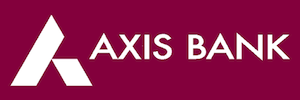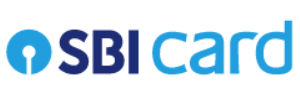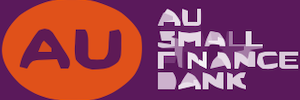Where to get loan in India
India offers a wide array of loan options suited to different needs. From personal loans for everyday expenses to home loans for buying property, there’s something for everyone. For business expansion, entrepreneurs can access various business loans. Education loans are available for those pursuing higher studies, while vehicle loans can help you hit the road with a new car. The options vary in terms of interest rates, tenure, and eligibility criteria, allowing borrowers to choose what fits their financial situation best. It’s important to carefully consider each option to find the right match for your needs.
| Company | Loan amount | Term of Loan | Age Limit | Apply | |
|---|---|---|---|---|---|
 | up to ₹ 15.000 | 3 – 12 months | 21 – 65 | Apply for a loan | |
| NIRA is one of India's best Instant personal Loan apps providing loans from Rs 2500 – Rs 1 Lakh in partnership with leading banks and NBFCs.To apply for a personal loan with NIRA you would need your Aadhaar number, PAN number, Salary slip and 6months bank statements. | |||||
 | up to ₹ 50.000 | 3 – 60 months | 21 – 65 | Apply for a loan | |
| Navi is one of the largest lending apps in the country and the latest venture by Sachin Bansal (formerly co-founder of Flipkart, India’s largest e-commerce player) and Ankit Agarwal (formerly a banker with Deutsche Bank and Bank of America) that plans on making financial services simple, transparent and accessible to all. Navi provides its clients with cash loans, home loans and health insurace services. | |||||
 | up to ₹ 50.000 | 3 – 36 months | 21 – 55 | Apply for a loan | |
| Fibe (formerly EarlySalary) is one of India's leading digital lending apps focused on young, aspirational and tech-savvy Indian consumers. Instant Cash Loans, Personal Loans, Online Loan, Instant Personal Loans. | |||||
 | Credit Card | 21+ | Apply for a loan | ||
| IndusInd Bank Limited is a new-generation Indian bank headquartered in Pune. The bank offers commercial, transactional, and electronic banking products and services. IndusInd Bank was inaugurated in April 1994 by then Union Finance Minister Manmohan Singh. | |||||
 | Credit Card | Apply for a loan | |||
| Axis Bank Limited, formerly known as UTI Bank (1993–2007), is an Indian banking and financial services company headquartered in Mumbai, Maharashtra. It is India's third largest private sector bank by assets and Fourth largest by Market capitalisation. It sells financial services to large and mid-size companies, SMEs and retail businesses. | |||||
 | Credit Card | Apply for a loan | |||
| SBI Card was launched in October 1998 by the State Bank of India and GE Capital. Incorporated as SBI Cards and Payment Services Limited (previously known as SBI Cards and Payment Services Private Limited), SBI Card is headquartered in Gurgaon, Haryana. | |||||
 | Credit Card | Apply for a loan | |||
| Standard Chartered PLC is a British multinational banking and financial services company headquartered in London. It operates a network of more than 1,200 branches and outlets (including subsidiaries, associates and joint ventures) across more than 70 countries and employs around 87,000 people. It is a universal bank with operations in consumer, corporate and institutional banking, and treasury services. | |||||
 | Credit Card | Apply for a loan | |||
| HSBC is one of the world’s largest banking and financial services organisations. HSBC serves approximately 40 million customers through our global businesses: Wealth and Personal Banking, Commercial Banking, and Global Banking & Markets. Our network covers 63 countries and territories in Europe, Asia, the Middle East and Africa, North America and Latin America. | |||||
 | Credit Card | 25+ | Apply for a loan | ||
| AU is a dream that was started 25 years ago by Mr. Sanjay Agarwal, a merit holder Chartered Accountant and a first-generation entrepreneur. Founded in Jaipur in 1996 as Au Financiers, a non-deposit-taking Non-Banking Finance Company (NBFC), it effectively worked on funding economic growth, especially for the under-served and un-served low & middle-class individuals. | |||||
 | Credit Card | Apply for a loan | |||
| Credilio is an official distribution partner for the distribution of Personal Loan / Credit Line products of the following Banks and NBFCs. Credilio offers a life time free SMB credit card, powered by Visa. The card comes with various lucrative deals and offers on multiple online shopping and OTA platforms. | |||||
Payment Term: The minimum period is 3 months and the maximum 18 months. Interest rate: The rate varies between 7.9% and 18.9% per month (149% to 698% per annum). Example of a loan: ₹1,500.00, to be paid in 12 months and interest rate of 10.15% per month (219% per year). Total of 12 installments of ₹221.77. Total amount payable equal to ₹2,661.18. This is a service to find and compare loan and credits. The conditions depend on the financial company, product, amount and loan duration.
Understanding different loan types
Deciding on the right loan can be challenging but understanding the differences between loan types can make it easier.
Personal loans, often used for various needs like education or medical expenses, are typically unsecured, meaning they don’t require collateral. These loans usually come with fixed interest rates and repayment terms ranging from one to five years, allowing borrowers to plan their finances. Consumer loans encompass a broader category, including loans for purchasing goods like electronics or vehicles. These loans might be secured or unsecured, affecting things like interest rates and repayment conditions. Business loans, on the other hand, are designed specifically for business purposes. They can be either short-term or long-term, and may require collateral. Businesses often use these to expand operations, buy new equipment, or manage cash flow. Understanding which loan suits your specific needs can help you make an informed decision.
Evaluating loan terms
Understanding loan terms is vital when deciding where to get a loan in India. Two major factors to assess are the interest rates and repayment terms. Interest rates directly affect the total cost of the loan. It’s important to compare rates from different lenders. A lower rate generally means less money paid over time. However, always consider if the rate is fixed or variable. Fixed rates stay the same, while variable rates can change over time.
| Factor | Considerations |
|---|---|
| Interest Rates | Compare rates across banks. Check if fixed or variable. |
| Repayment Terms | Understand the monthly installment amount. Consider flexibility. |
Repayment terms are equally crucial. They determine how long you pay back the loan and the size of each installment. Longer terms might mean smaller monthly payments but could result in paying more interest overall. Some lenders offer flexible terms that allow early repayment without penalties—this could be beneficial if your finances improve.
Weighing the pros and cons of short-term loans
Short-term loans can be a quick fix for financial needs. They are accessible and often have less stringent requirements compared to long-term loans. This can be beneficial for individuals who need funds urgently and might not have a perfect credit history. However, these loans generally come with higher interest rates, making them costly in the long run.
- Flexibility in approval requirements means more people can access them.
- Quick disbursement ensures funds are available when needed the most.
- Yet, high interest rates can accumulate, leading to potential debt traps.
- Short repayment terms might not suit everyone, causing financial strain.
- Some people avoid them due to the risk of falling into a cycle of debt.
While they offer immediate relief, it’s crucial to understand the financial obligations involved.
Considerations for long-term borrowing
When opting for a long-term loan, it’s essential to weigh both cautionary points and benefits.
Long-term loans offer stability in repayment schedules, often coming with lower monthly installments, making it easier for borrowers to plan their finances. However, one should be cautious about the total interest paid over the extended duration. This interest can accumulate to a significant amount, surpassing the original loan figure. It’s crucial to assess your ability to maintain a consistent income to manage regular payments. On the positive side, long-term loans might provide more flexibility in terms of the amounts you can borrow. This can be ideal for substantial expenses like home purchases or starting a business, as they allow for larger financial undertakings spread over years. Yet, a longer commitment means tying oneself down to future obligations, which can impact your financial freedom. Always consider the interest rates and read the terms and conditions thoroughly before proceeding with such commitments.
Is online lending reliable?
Online lending has become popular for many seeking quick and convenient financing. It offers easy access and a wide range of options without the need to visit a bank. However, it’s essential to weigh the benefits and risks involved.
- Pros: Offers convenience, quick processing, and accessibility from anywhere.
- Cons: Risk of high-interest rates and potential scams if not careful.
It’s crucial to choose platforms carefully and verify their credibility to enjoy a reliable lending experience. Utilizing trustworthy online platforms can indeed streamline the loan process.
Getting a loan without collateral
Unsecured loans, also known as loans without collateral, offer a practical solution for individuals who do not possess valuable assets to pledge. These loans are widely available through various banks and financial institutions in India. They assess eligibility based on the applicant’s credit score, income, and repayment capacity. Generally, such loans come with higher interest rates compared to secured loans, as lenders take on greater risk.
One popular option is personal loans, which are often chosen for their versatility and ease of access. They can be used for various purposes, from medical emergencies to travel expenses. The application process is straightforward, typically involving minimal documentation and quick approval for eligible candidates. Sometimes, lenders offer pre-approved loans to existing customers, making the process even faster and more convenient.
Another avenue includes peer-to-peer lending platforms. These allow individuals to borrow directly from other individuals, often at competitive interest rates. Such platforms have gained traction as they provide a more flexible borrowing experience. It’s important to carefully review the terms, interest rates, and fees associated with any unsecured loan to ensure it suits your financial situation.Consider these options thoughtfully, and always evaluate your ability to repay before committing to a loan.
Final thoughts on choosing the right loan
When deciding on a loan, it’s important to evaluate the terms carefully. Look into the interest rates, repayment period, and any additional fees that might be involved. Remember, a lower interest rate might seem appealing, but always check for hidden charges. Consider your current financial situation and how a loan will affect your budget in the long run. Selecting a loan that aligns with your needs while ensuring you can meet the repayment schedule is crucial. Keep these factors in mind to make an informed decision that suits your financial goals.
